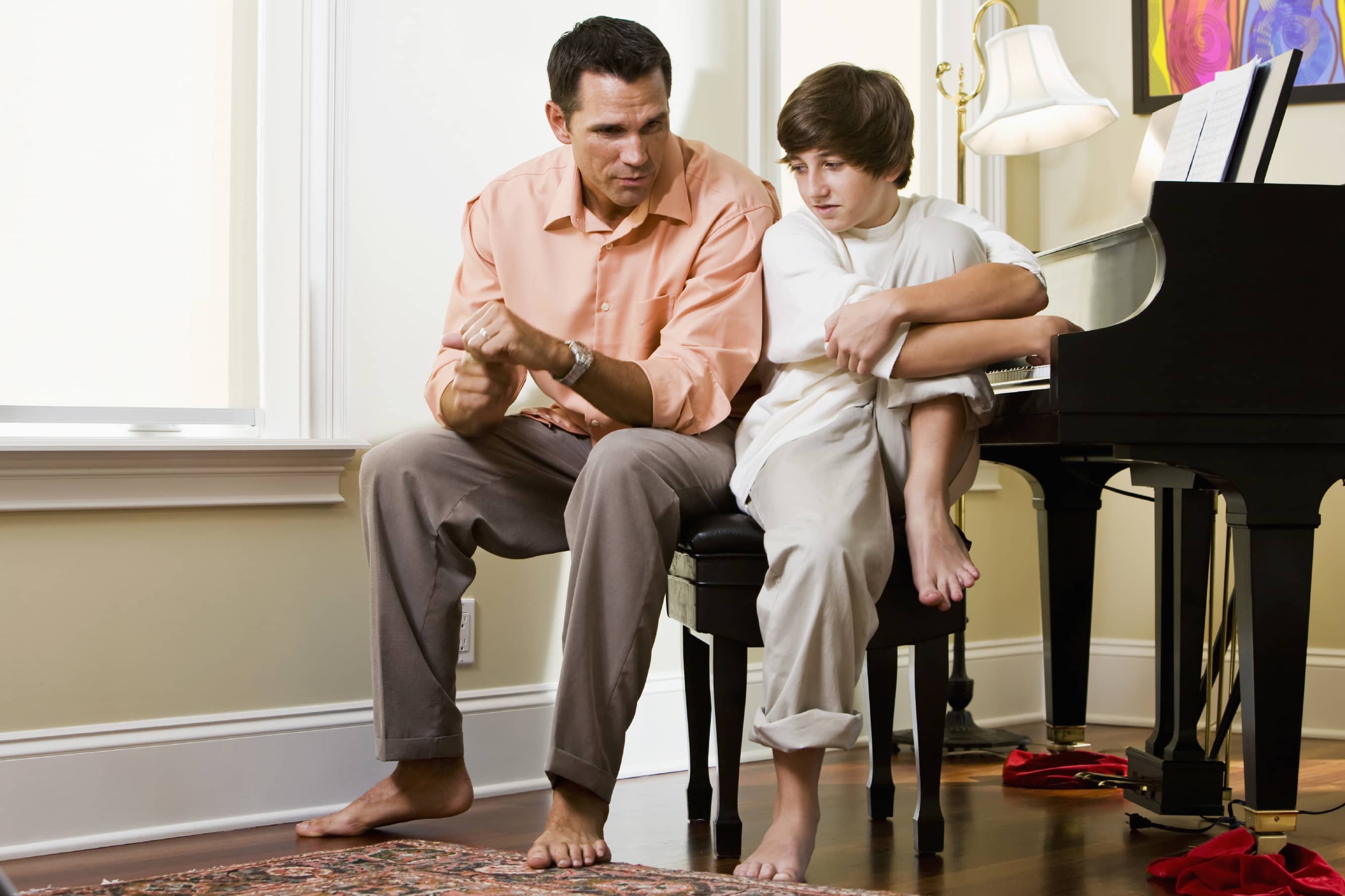While kids everywhere are milking as much fun from the last days of summer, parents have the big job of preparing for the new school year.
As summer winds down and the back-to-school season approaches, it’s normal for both kids and parents to feel a little anxious. After a few short months of freedom and relaxation, the transition back to school can feel overwhelming for everyone. But with a few simple strategies, parents can help their children adjust to new routines, ease back-to-school anxiety, and make this transition smoother for the whole family
Estimated reading time: 4 minutes
In this article, we’ll explore three emotionally intelligent back-to-school strategies to help ease the summer’s end and set your child up for a successful school year. From establishing a consistent routine to managing school-related stress, we’ve got you covered with practical tips you can implement right away.
Parenting Strategies for Back to School
Strategy #1: Create a Safe Place for Children and Teens to Talk
Even though for the most part, restrictions have been eliminated and the pandemic is in the rearview mirror, some kids are still feeling the effects. Remote learning during the pandemic created a new avenue for potential anxiety. For example, teenagers who were separated from their peers and missed out on prom dances or sports began feeling more self-conscious. They naturally leaned into social media as a way to connect.
Conversely, introverted students who thrived in a remote setting during the pandemic lost their confidence and socializing might have seemed more intimidating. On the other hand, being at home was a haven for some students from stressors such as social anxiety, bullying, or navigating learning disorders. Every situation affects kids differently.
The point here is that life will always throw curve balls and our children need to learn how to be resilient.
Teens don't always want to talk about their concerns, but it's essential to let them know you are available when they feel like sharing. If they don't feel comfortable talking with you, suggest reaching out to a relative, teacher, or another respected adult.
You can help normalize children's and teens' worries by talking openly and at age-appropriate levels. Whenever changes come about, be open about the information so kids can prepare mentally and emotionally. It can be as simple as their favorite teacher moving to another state or a new kid in class who is bossy or bullying.
Kids of all ages are naturally resilient, but they often need help processing their emotions, especially with big changes. Watch for signs such as isolation, irritability, low mood, difficulty sleeping, lack of motivation, disinterest in usual activities, complaints of physical ailments, changes in eating patterns, or concerns about their safety.

Strategy #2: Encourage meaningful conversations with open-ended questions.
If you see signs of anxiety, start by asking open-ended questions that invite conversation. Acknowledging their fears assists them to feel more secure. Validate their concerns and feelings without fueling them. Instead, help them find coping strategies such as creating a list of ideas on how to resolve their concerns or teaching them simple breathing exercises.
Feeling empowered often raises children’s confidence. Remember, kids may want to talk about problems without having you fix them, so it’s essential to demonstrate that you believe in their abilities.
Teach them to recognize the physical signs of anxiety and ways to manage it.
For example, a productive tool for moving kids out of concern is envisioning a stoplight; a red light means stopping and asking yourself what you are worried about. Yellow means to create a list of potential solutions to remedy the worry, and green means to pick the strategy you like best and move forward.
The most important thing you can do as a parent is to model confidence and calm behavior. When children are anxious, they will respond better if you stay calm, show empathy, and guide them to regulate their emotions. Often when kids are upset, they will ask more questions—even unnecessary questions; this is a good indication you may need to slow down and check in.
Related Reading: How to Teach Your Child Emotional Regulation Skills
Parenting Strategy #3: Keep Your Focus on the Positive
Help your children manage their emotions by creating positive anticipation. Remind them how fun it is to see friends, learn new things, and participate in new activities. Prioritize optimism instead of results; the goal is to keep them interested in learning, not adding pressure to perform.
Talk openly about how humans can feel many emotions at one time. Experiencing big emotions without the emotional regulation to manage them is a daunting task. For example, going back to school may bring about relief and anxiety or excitement and sadness. Helping your child identify and navigate their emotions can ease some of their stress.
After school, it's good to talk about the day during dinner, so kids have a structured place to sort out their feelings. An easy way of doing this is to ask everyone to talk about their favorite and least favorite parts of the day. When our kids were young, this was their favorite part of dinner!
Related reading: "Positive Parenting: 3 Parenting Strategies for Greater Patience."
 Bonus Parenting Strategy: Get Organized for the School Year
Bonus Parenting Strategy: Get Organized for the School Year
Use back-to-school shopping to understand your child more. For example, are their preferred clothing styles changing? What color notebook do they like? Do they want to bring their lunch from home or purchase it from school? Engaging them in small decisions is a way to connect, give them power in an appropriate way, and get them back into a routine.
Set reasonable expectations about schedules. Let kids know what they have coming up in the week for extracurricular activities. A family calendar on the wall lets everyone know one another's plans. Be mindful of not taking on more commitments than the family can comfortably handle.
Start bedtime routines at least a week before school starts, if possible, to get kids accustomed to going to bed and waking up earlier. Bath time and reading before bed can help them relax and unwind. Organize outfits, backpacks, lunches, and gym bags the night before to avoid missing items! Start new rituals, such as riding bikes together to school. Routines and rituals are very supportive and reassuring for children of all ages.
Related reading: "How to Support Your Children Going Back to School Ideas."
Most importantly, don't forget to take time for yourself. Managing your stress levels helps set the tone for the rest of the family. So, soak up the last bit of summer, and get ready to nestle in.
Other Helpful Resources:
Back to School Anxiety: How to Help Kids Manage Worries by Child Mind Institute
Helping Your Child Fight (and Beat) the Back-to-School Anxiety published by University of California
A Healthy Send-Off to School by Stanford Medicine
If you'd like to learn more about emotional intelligence or want parent coaching support, contact us at support@heartmanity.com.


.png?width=225&name=Kali%20Gallette%20Headshot%20cropped%20(2).png)






